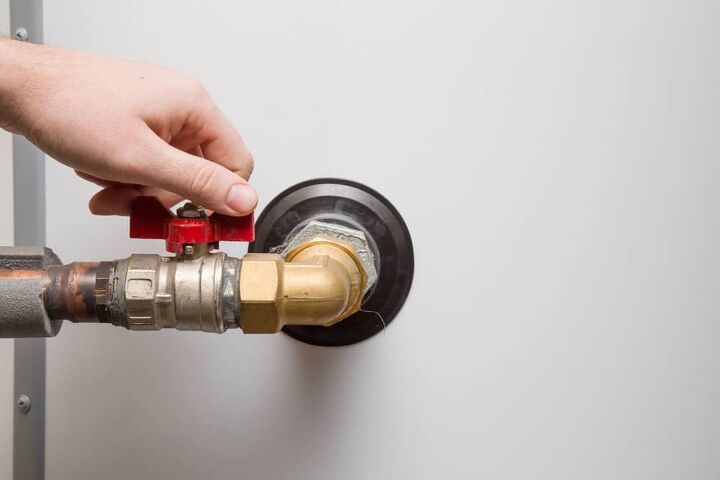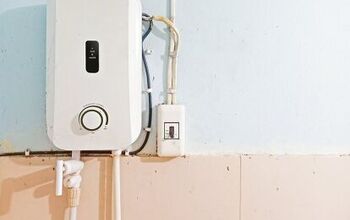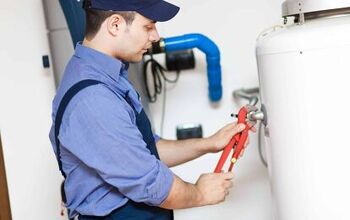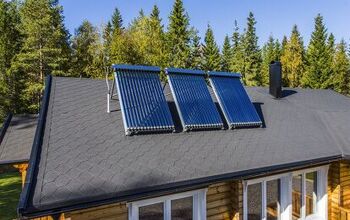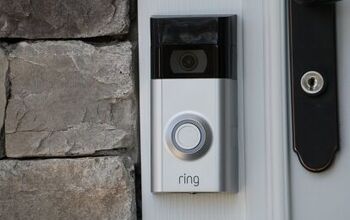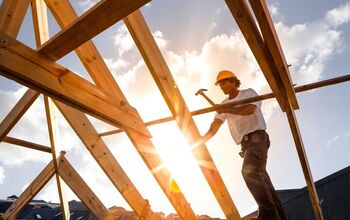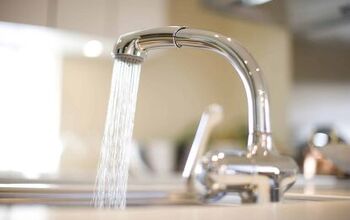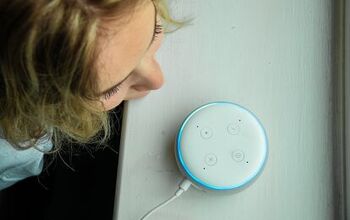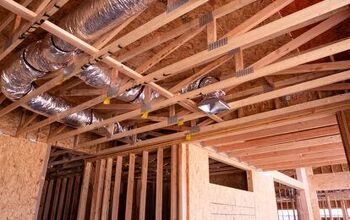Water Heater Vs. Boiler: Which One Is Better for Your Home?

When I first started my journey into the world of home improvement, I used to use the terms “water heater” and “boiler” interchangeably. It’s a rookie HVAC mistake, and almost everyone who is first starting out tends to make the same mistake. However, water heaters and boilers are not the same thing. You’re probably wondering what you have, right?
A water heater can heat your water to 120 degrees Fahrenheit, and a boiler heats your water and home. Boilers can heat water faster than a water heater, and they are also less maintenance than water heaters. Water heaters are convenient but they only heat your water, whereas boilers can circulate heat throughout your home.
Understanding what type of water heating element your home has isn’t just about making sure you know how to maintain it. It can help you learn how to make the most of your water. This article will help you learn the details.
Do You Need Water Heater Installation or Replacement?
Get free, zero-commitment quotes from pro contractors near you.

What is a Water Heater?
A water heater essentially has one purpose that is, you guessed it, to heat potable water. This heat is either produced by utilizing electricity or by burning gas. The hot water that results is then used for things like washing dishes, washing machines, showers, and more.
Types of Water Heaters
There are essentially two main types of water heaters: conventional water heaters and tankless water heaters. Though, there are a couple additional variations to be aware of.
- Conventional Water Heaters: These standard water heaters have a tank to heat up the water and then will keep it at the ideal temperature until it is used, whether it’s for your washing machine, a warm shower, or some other function. As the hot water exits the tank, cool, fresh water enters through the base and the cycle continues.
- Tankless Water Heaters: Also called “on-demand” water heaters, tankless water heaters lack a tank. To make up for not having any stored water, they heat water very quickly. Plus, they take up less space in the home.
- Solar Water Heaters: These units are designed to be used with solar thermal panels, which do not produce electricity. They draw heat from the sun and then transfer it to your water heater. Solar water heaters are ideal for use in sunnier, warmer climates.
- Heat Pump/ Hybrid: A heat pump or a hybrid water heater is generally more energy efficient than other variations, since they use heat from the air or ground. Though, this makes them a poor choice for particularly cold regions.
What is a Boiler?
Boilers, on the other hand, are a little more complex. Contrary to what you may assume, boilers do not boil water. Instead, boilers convert water into steam and are not only used to heat water, but also for heating your home and generating power. They heat water very fast, and similar to hot water heaters, come in tanked and tankless varieties.
However, unlike water heaters, some boilers are outfitted with a hot water storage system. With boilers, the tanks hold the cold water, and cylinders house the hot water.
Types of Boilers
The various different types of boilers are as follows:
- Conventional Boiler: These boilers have both a cold water tank and a hot water cylinder, meaning it takes up quite a bit of space. Though, this type of boiler is ideal for larger homes where multiple taps may be open at the same time.
- Combination Boilers: This type of boiler supplies heat and hot water to your home. No hot water cylinder and no cold water tank means that combination boilers take up little space. Though, these boilers deliver an unlimited supply of hot water.
- System Boiler: System boilers have a hot water cylinder, but do not require a cold water tank. Water enters from the main and then is both heated and stored inside the cylinder. The hot water capacity is only limited by the size of the cylinder, which is available in numerous sizes based on your needs. If the hot water runs out in the cylinder, you’ll have to wait until the cold water from the main is heated and stored again.
- Condensing Boiler: A condensing boiler is technically not a type of boiler, but rather a characteristic that these units can have. They retain the heat that escapes the flues when venting toxic gases, which makes them more energy efficient. The other aforementioned boiler types can also simultaneously be considered a condensing boiler.
Understanding The Differences Between Water Heaters And Boilers
At the very crux of the matter, water heaters and boilers do the same thing. They heat water. How they do it, however, is what makes the difference so striking. Let’s take a look at the biggest differences between the two:
- Boilers heat water to steam, while water heaters just make the water hot. The steam in boilers can be sent to faucets in the form of hot water, but it can also be used to power your home and heat it. With water heaters, the water isn’t high-temperature enough to do that. All water heaters can do is give you hot water in a faucet.
- Boilers can be tanked or tankless and also can come with a storage system, while hot water heaters almost always have some storage option. Boilers can potentially have some kind of storage, while water heaters always need to have some kind of storage. It’s just the way they’re built. (With that said, some tankless water heaters exist. This is just a generalization!)
- Water heaters tend to have smaller water storage options than boilers do. Despite water heaters being known for storing their warm water, their tanks tend to range between 20 to 30 gallons on average. Boilers often have tanks that are far higher, with 120 gallons being a common option for larger homes.
- Boilers are known for having more resilience in cold climates. If you live in Alaska, a boiler is a must-have. Water heaters don’t fare as well in cold climates.
- Water heaters are more efficient. When it comes to energy expenditure, water heaters are the big winner. However, they tend to require more maintenance than boilers do, which means that the costs tend to even out when compared to the savings.
Boilers vs. Water Heaters: The Biggest Boiler Advantages
If there’s one thing that everyone can agree on, it’s that everyone needs to have something to keep their water hot. The thing is, trying to figure out which tool will work better for you can be dicey. However, most people tend to be better served by owning boilers. They are more versatile, faster-acting, and require less maintenance.
Versatility
A water heater has one purpose, and one purpose only. It heats water up to around 120 degrees. That’s it. At surface value, that’s what a boiler is supposed to do, too. However, that’s not quite the truth. While boilers do provide people with a bunch of hot water, there’s so much more they are capable of.
Boilers are more than just water heaters. The heat they provide can be used to heat the entire home, and even provide energy in some cases. So if you have a boiler, you won’t need a furnace in many cases. Meanwhile, if you only have a water heater, you will undoubtedly need another heat source for the rest of your home.
Speed
When it comes to the speed of delivery, boilers also tend to be the winner. Water heaters are designed to heat up water and store it at that temperature. It’s a steady heat, but it’s not a powerful heat. Boilers, though they can have storage included in them, are meant to heat up water on demand.
With a boiler, you get hot water almost instantly. This is because of the heating mechanism it uses, which turns the hot water into steam. If you need hot water in a flash, you’ll want a boiler.
Maintenance
If you are looking for low-maintenance heating systems, then a water heater won’t be it. Water heaters require more maintenance and cleaning than a boiler does. Moreover, you don’t only have to consider the maintenance for the water heater either. Since you will also need to have a furnace or heat pump, you may also have to take maintaining those too.
Comparing the Hot Water Output
Both boilers and water heaters have a limit on how much water they can feasibly heat up in the span of a couple of hours. Both tankless and tanked water heaters have a hot water output between 2 and 5 gallons per minute, which is actually fairly decent for most families.
However, there’s always the possibility that you could consume water faster than your heater can make it. Though boilers can occasionally run out of hot water, the truth is that they hold a far better advantage when it comes to output.
Because boilers are primarily meant for “on-demand” heating, they are able to withstand heavier demands than a typical water heater can. If you have a large family, make sure to get a larger water heater or a larger boiler.
Do I Need a Boiler or a Water Heater?
As I said before, most people tend to prefer having a boiler. They are ideal if you have a large home, a complex, or a commercial building you want to heat simply because they are capable of handling the water outputs. However, if you are looking to get a small home with simple controls, then a water heater will be an efficient, easy to use choice.
There is one other moment where you may want to invest in a boiler: if you live in a colder climate. Boilers are much more resilient in colder climates, while water heaters tend to be the more efficient picks in areas where freezing temperatures don’t happen. Moreover, water heaters won’t be able to provide as much heat during winter storms, potentially putting your home in jeopardy.
Which Is Easier To Operate: a Boiler Or a Water Heater?
When it comes to water heating tools, most homeowners prefer the overall usage style of a water heater. It’s just simpler to work with. Things are easy to understand, there are fewer switches, and the overall experience of maintaining one is streamlined. This, in turn, is one of the big reasons why water heaters remain fairly popular.
If you have a boiler, you will most likely notice that everything from the controls to the maintenance procedures are a little more complicated. High-pressure boilers (those over 160 psi) used in commercial areas may require extra monitoring on top of what you normally would have.
Water heaters generally have a higher operating cost, even though they are technically the more efficient choice. If you want to get radiant heat flooring, then you can use either boilers or water heaters to do the trick. However, water heaters may be less equipped to deal with the demands of radiant heat.
Which Is Cheaper To Fix: a Boiler Or a Water Heater?
Let’s say that you have two homes, one with a boiler and one with a water heater. There are going to be some issues that come with both. Water heaters, on average, will last between eight to 12 years. Boilers can last approximately 15 to 20 years, given enough maintenance. Right off the bat, this makes boilers a better long-term choice.
Unfortunately, most people will tell you that boiler maintenance isn’t going to be an easy thing to deal with. Water heaters can (to a point) be maintained on your own. Boiler repair and parts replacement are, on average, slightly more expensive than working with a water heater. Here’s why:
- Installation is more involved with a boiler. You may have to pay for extra ductwork and you also will have to pay for the labor that comes with hauling a boiler inside.
- Most boiler maintenance will require a professional, simply because the systems can get so complex and because the high heat can be risky. Some areas actually require certified HVAC professionals to be the ones to maintain and service boilers, simply because of the risk. You will need to flush out your boiler at least once every six months, and lubricate any moving parts every two years to maximize its lifespan. Water heaters won’t require that much work.
- The price of replacement parts is also higher. Boiler parts are highly calibrated and are designed to last longer, which gives them a premium price on the market.
- Though boilers are the longer-lasting of the two, they’re more prone to leaks. This is just the nature of the beast, if you know what I mean. You should expect your boiler to leak once in a while.
Do Building Codes Have A Say In Choosing A Boiler Or Water Heater?
Believe it or not, some building codes have rules against using water heaters. This is most common in extremely cold places like Alaska, since there’s a chance the water heater could freeze up. If you are not sure whether water heaters are allowed in your area, check your building codes or ask a local plumbing company.
Which Is More Expensive: a Boiler Or a Water Heater?
When it comes to the overall expenses that you can consider, the two are basically even. It all depends on what you want to spend your money on. Here’s what you have to be aware of:
- Boilers will have more upfront costs but last a longer time. If you want to save money and have the right housing situation for it, then you should look at a water heater instead. Water heaters are cheaper to install.
- Water heaters will cost more to operate. Though they are more efficient, the actual energy they take can cost more. Moreover, since they aren’t heating your home like a boiler would, you may have to set aside additional funds for heating.
- Repairs tend to be more pricey with boilers. Since the parts and labor both have a premium price with boilers, when a boiler breaks, it’s often going to hit your wallet harder.
- However, you will need to replace water heaters faster. It’s possible to go through three water heaters in the time that you go through one boiler. That tends to make people believe that the fees are fairly balanced out when you look at the big picture.
Boilers vs. Water Heaters: How Much Does It Cost To Install One?
If you’re really worried about upfront costs (and who isn’t?!) then it’s good to know what the current price range is for installing either tool. Boilers are the more expensive, with an installation range of $3,500 to $8,000 on average. Upscale and high-performance boilers can cost over $10,000 to install. Some parts of the country also will charge an additional fee for certification as part of housing law.
Water heaters, however, can often be installed on your own, making them more affordable—especially if you are prone to DIY setups. A professional water heater installation will range between $1,000 and $3,500 for a standard model. If you choose a tankless water heater, you may see prices as high as $4,500.
Which Have The Best Warranty?
Another major concern of homeowners who want to make sure they get the most out of their money is the warranty that comes with a water heater or a boiler. Though the exact terms of the warranty will depend on both the manufacturer and model, boilers are generally viewed as having the longer warranties.
Regardless of whether you choose to get a boiler or a water heater, it’s important to read the terms of the warranty prior to installing it in your home. Both water heater and boiler companies often choose to void their warranties if you do a DIY install. If you want to keep the warranty intact, stick with a professional HVAC installation.
Related Questions
What is a combination boiler water heater?
This is not a dual water heater boiler! Rather, this is a boiler that can switch between on-demand water heating and then turn into a space heater at the flip of a switch. The switch itself can be automatic, making this one of the best boiler types for people who want an all-around great experience with heating.
Which is more fuel-efficient, a boiler or a furnace?
Another reason why people prefer to use boilers in cold climates is because they are more energy-efficient when it comes to heat output. Steam carries heat a lot further and faster than air does, which means that a furnace would have to work harder to get the same quality of heating as a boiler. Moreover, boilers provide a more even heating experience overall.
Are boilers dangerous?
While boilers were known for being dangerous in the past, that’s no longer the case. Boilers are now equipped with a wide array of safety features that are designed to prevent explosions, overheating, and fires. If you were avoiding the use of a boiler due to the old stigma they once carried, it’s time to rethink things.
What is the best brand of water heaters?
The best brand of water heaters is rated based on sales, performance, and variety. They are split into three categories – tankless, gas, and electric water heaters. For tankless water heaters, the Rinnai RUC98iN Tankless Water Heater is one of the best options. The Rheem Performance Platinum Gas Water Heater is the winner in the gas water heater category. Rheem Performance also wins in the electric water heater category for the Platinum Hybrid Electric Water Heater. As with all appliances, you should choose based on what best fits your home, budget, and lifestyle.
Do You Need Water Heater Installation or Replacement?
Get free, zero-commitment quotes from pro contractors near you.

Our Final Take
Keeping all of these factors in mind and your lifestyle, a water heater is the better option. Not to mention, if your water heater fails, you’re only missing out on hot water. If your boiler fails, you’re left with no hot water and a cold house (unless you have a backup heating system). Water heaters and boilers require similar maintenance and feature comparable lifespans.
However, water heaters are typically less expensive and have more energy-efficient options. Therefore, if you properly maintain your water heater, it should work for many years and save you money over time.

Ossiana Tepfenhart is an expert writer, focusing on interior design and general home tips. Writing is her life, and it's what she does best. Her interests include art and real estate investments.
More by Ossiana Tepfenhart



